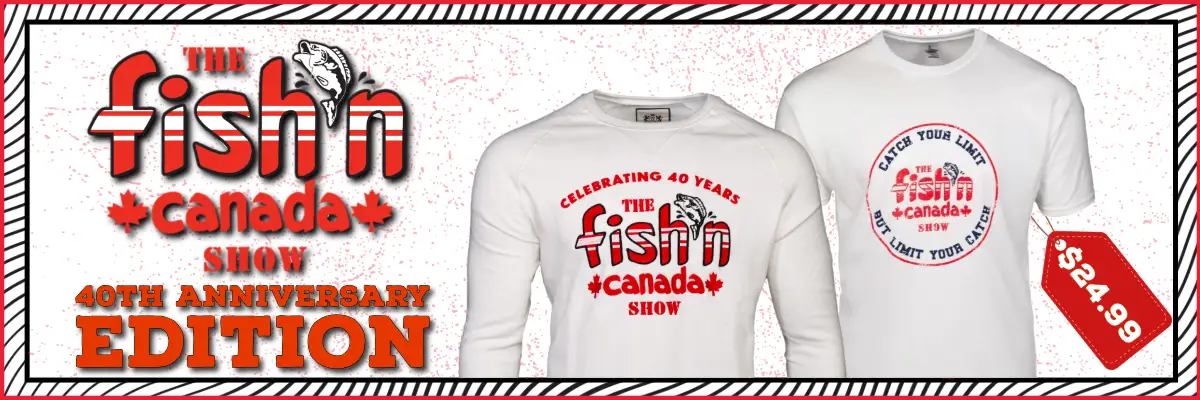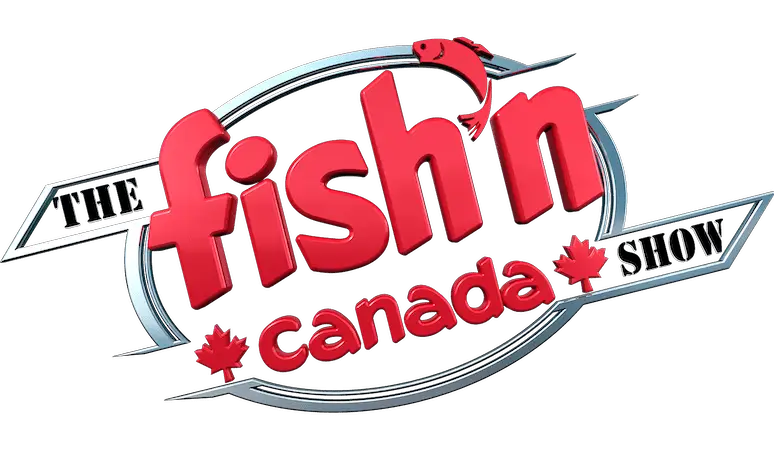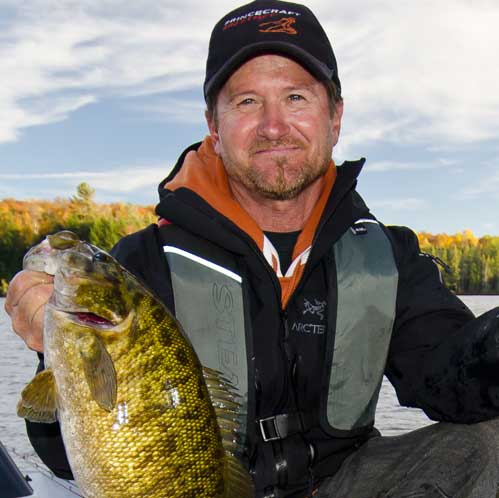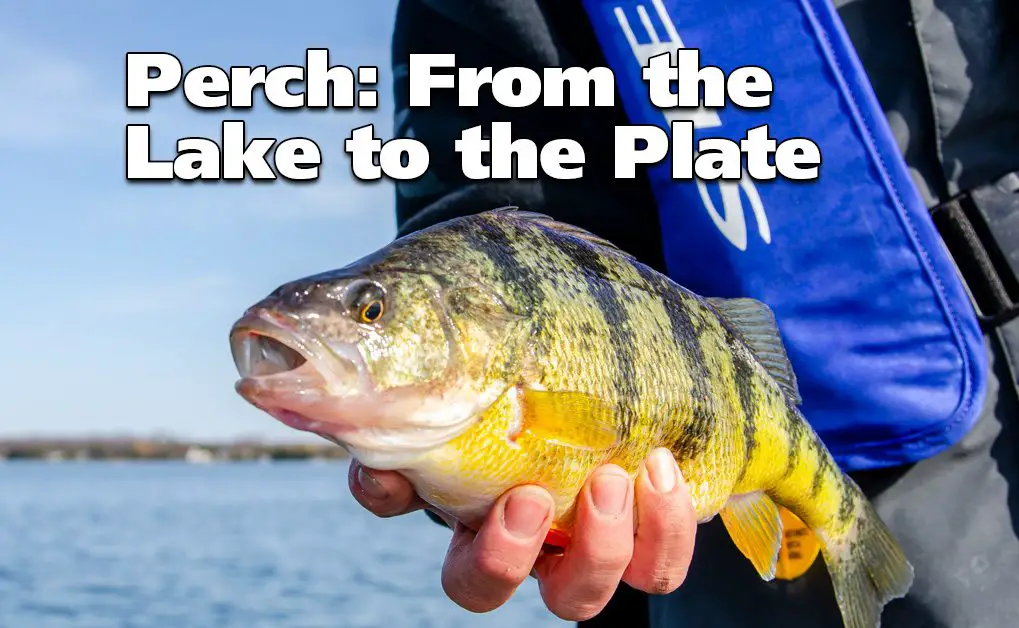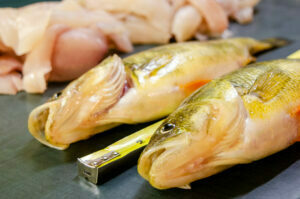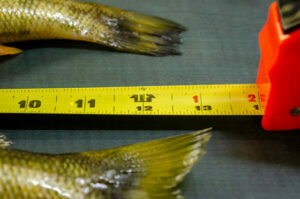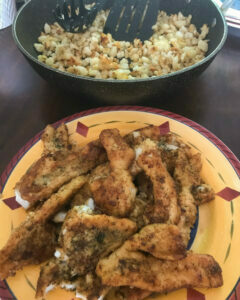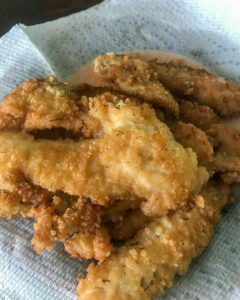I think there’s a great misconception out there that Ang and I release “all” our fish. Before I even came on board here at Fish’n Canada, Angelo and Reno came up with the phrase “Catch Your Limit, But Limit Your Catch.” These two then relatively-unknown brothers in the fishing world were already heavily preaching the catch and release philosophy (and kudos to them for it).
Through time, as the three of us grew, so did our concept of throwing back a lot of fish. We released pretty much every fish we filmed for a television episode. Reno would even famously give them a kiss goodbye.
Well, Fish’n Canada fans, if the truth be known (to those not in the know), I do keep the odd fish for consumption and I’m not afraid to say so. It’s all about the type of fish I keep.
Is Perch Good To Eat?
Perch is GREAT to eat. Hands down, my favourite fish meat is the white, flaky variety and Perch falls into that variety. This category also includes Walleye, Pike, Crappie, Sunfish, and even Rock Bass in the freshwater world. Also Striped Bass, Halibut, Sea Bass (the small ones from the West Coast), and most of the groundfish in the Pacific. That said, I do love an occasional feed of small Trout or wild B.C. Salmon. Throw some smoked Whitefish in front of me and watch me go! Sushi? It’s game on again. Fish tastes good and it’s healthy.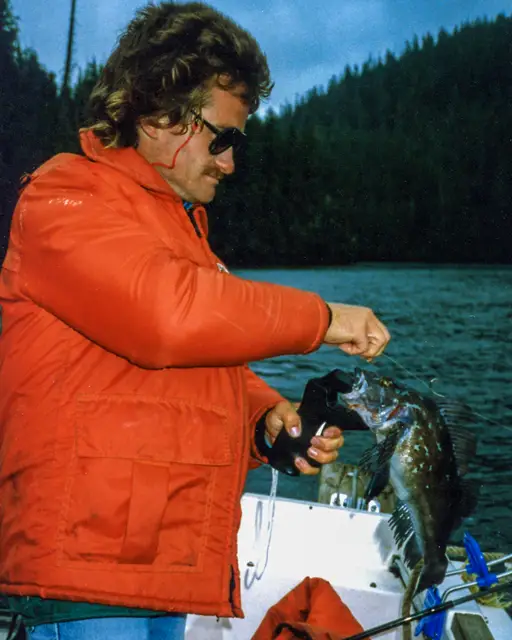
Which brings me to this blog. It’s all about the Perch family and, in particular, Yellow Perch and Walleye (yes, Walleye are a “Perch”).
It’s been a while since I’ve written about panfish, so this will be fun.
A RECENT OUTING
Since this crazy pandemic has hit us all square in the face, my early-season fishing has been nothing but a notion until recently. On my first panfish adventure, I took my wife out for Crappie on Rice Lake in Ontario and we had a mediocre day at best. I believe the fish were there. However, the north wind was pounding on us, making it extremely uncomfortable. Not good conditions to take your spouse out.
My most recent trip was on the Bay of Quinte—again in Ontario—with Perch and Walleye in mind. Perch are a great backup fish if the Walleye aren’t on the bite.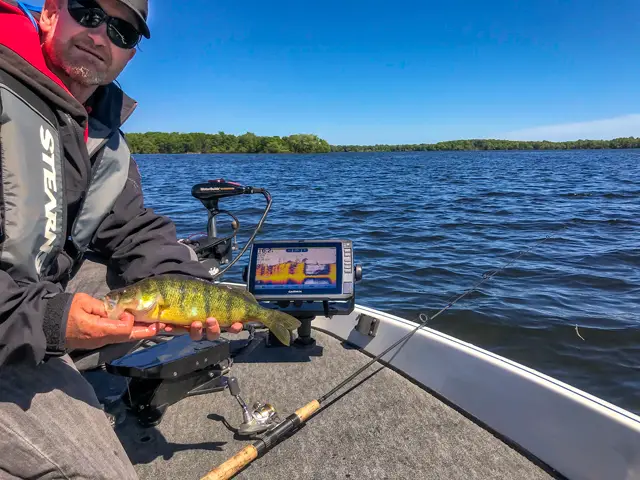
My first stop was a Walleye flat in about 15-20 feet of water. The beauty of a flat is the fish are easy to see and mark on electronics. I did one north-to-south trolling motor pass and only saw one small fish and didn’t catch it. My second spot was a small rock/weed area that “on paper” should’ve been good for anything that swims. Very fishy looking—in a good way.
It didn’t take long to pop a couple of Walleye, a great three-pounder and a little eater. Both were on jigs and plastics using my early-season jigging techniques. With the spot being so small, however, things shut down rather quickly. On to my next idea…
Again, this was another Walleye spot that normally works from about mid-June and into the summer. Upon arrival, though, I intuitively knew that it wasn’t ready yet. The water was too cold and clear (lack of weeds and floating particles, general colour, etc.). The water temperature was an unbelievable 15 degrees Fahrenheit colder than my first spot. Ouch!
The beauty of this area, however, is I know a Perch spot is pretty much right there!
ON TO THE PERCH
I had a feeling the Perch would be in a bit better biting mode than the Walleye because I could see them occasionally following my Walleye jig in. That shows activity. As soon as I got close to where I thought the Perch would be—pop! It was an instant hook-up.
For the next couple of hours, I culled through quite a few Yellows to end up with a half-limit in the box (plus my two Walleye). I normally don’t keep my full limit of Perch or other panfish (50 in my case with a sportsman licence) simply because it’s a lot of cleaning.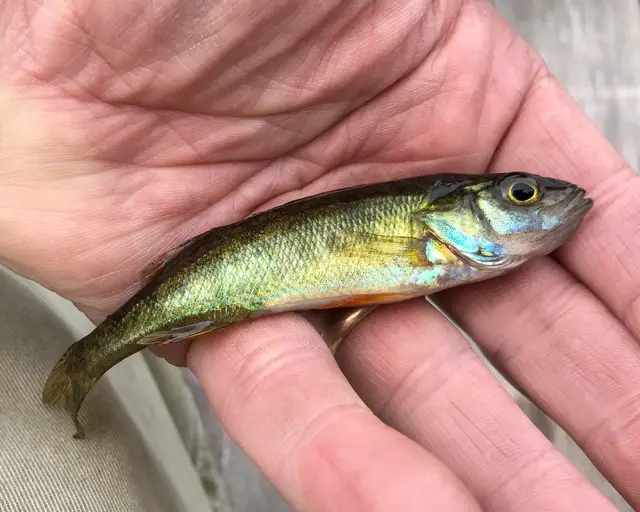
MY PERCH FISHING GEAR
My equipment for the Perch was an ultralight spinning rig with 8-pound test braid and a 6-pound test fluorocarbon leader. Ultralight is so much fun. Yes, 8-pound to 6-pound probably is not to be considered ultralight; however, as with a lot of my fishing, I go as heavy as I can. In this case, it didn’t matter. As a matter of fact, I do have some light outfits geared toward Trout, live bait Walleye, etc. that I sometimes use for panfish, but I prefer to use the ultralight rod action for the ultimate-in-fun factor.
As for baits, I used plastics. No need for live bait. A small 1/16-ounce jighead in calm conditions and a 1/8 if the wind picks up. Add to that a little 2.5–3-inch finesse minnow-type bait in a subtle or a bright colour pattern like white (or something with white in it) and I’m off to the races. The odd time I’ll move to a curly-tail grub or a tiny tube bait, but my main Perch plastic is a small minnow-style shape.

I vary my retrieve throughout the day to see if something works better than others. If I see the fish high in a school on our Garmin LiveScope, I’ll cast out and swim the jig through the school. (I do this on many different species; scroll down to Swimming A Jig in this article.) If nothing is showing up on LiveScope, I’ll work the bottom of the lake. Simple and easy.
ANY BIG PERCH?
My Perch outing ended up being all I could ask for. I kept more than enough for a couple of family feasts (the entire Bowman gang loves Perch) and threw back loads of smaller ones.
These two would make even Simcoe and Erie Perch hunters happy.
The highlights of the day were two mongo-Perch that measured in at just under and just over 13 inches long. I know that might not raise too many eyebrows on Erie, Simcoe, Franny etc., but on the Bay of Quinte, those are nice ones! Rare for sure, but excellent for a tug-o-war on ultralight gear.
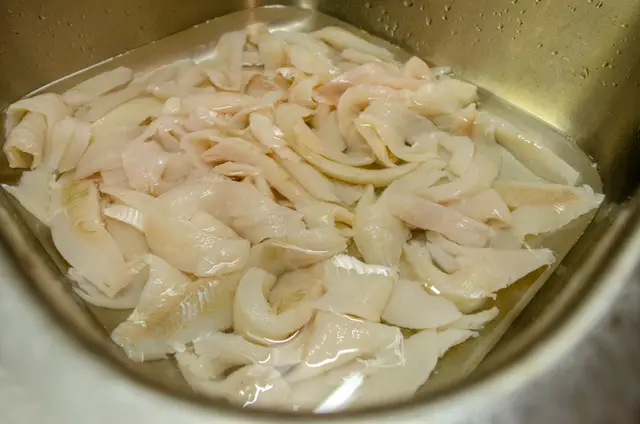
I talked to my dad on the way home (He’s a Perch nut-bar like me) and after I told him how many I’d kept and had to clean, he said, “That’ll be good for a few beers.”
He was right.
Perch fillets prepared two different ways—both delicious.
The only thing missing from this meal was Dad. I chucked a sack of fillets into the freezer in anticipation that once this BS pandemic mode passes, he has got the invite for a meal fit for a king… and justifiably so.
Triple Gs: Golden-Gordie and Gluten—I can’t wait!
